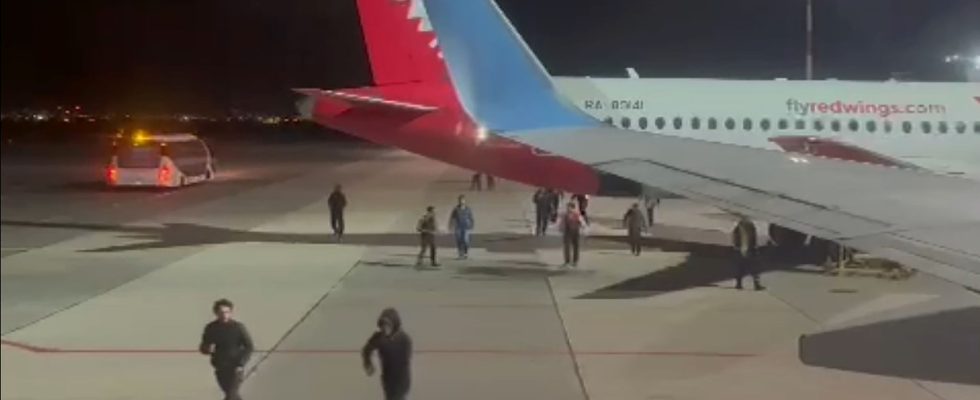“Uytash”, the name of the international airport of Makhachkala, in Dagestan, is now synonymous with a very dark episode in the history of this small Caucasian republic of Russia, with a Muslim majority. On the evening of October 29, a crowd of more than 1,500 Dagestanis, mainly young men, invaded the tarmac to “hunt down Jews” who were disembarking from a flight from Israel, against the backdrop of the war in Gaza between the Jewish State and Palestinian Hamas.
This episode of violence, preceded by numerous anti-Semitic attacks throughout the Caucasus region since October 7, caused a wave of panic even in the Kremlin. As during the Prigozhin mutiny, the fear of the Russian elites was noted by the silence of the Russian state media in the first hours, apparently not having received instructions on the treatment of the uprisings.
“It is very strange, because the international airport is a highly secure area in Dagestan,” notes Saida Sirazhudinova, postdoctoral fellow at INALCO and specialist in the Caucasus. “The fact that this action was not stopped by the security forces suggests that perhaps they did not want to end the conflict.” For several hours, the police remained passive in the face of the crowd. A video shows police using megaphones calling on demonstrators not to commit pogroms or block roads, while assuring them that they “understood” them and were “ready to stand up and chant” with them, reports the independent Russian media Meduza.
Enhanced security
If the Kremlin finally blamed on “foreign interference” from the West and Ukraine to destabilize Russia, Moscow fears that such violence will be repeated. On Wednesday, November 1, the authorities of the Republic of Ingushetia have strengthened security measures at Magas Airport, after reports on social media indicated the arrival of a flight from Israel, as did the Republic of Circassia.
Of the hundreds of demonstrators who participated, several dozen arrests have already taken place. The figure may seem low, but a wind of general repression is forecast throughout the republic. “We can expect a high level of repression,” explains Jean-François Ratelle, professor at the University of Ottawa and specialist in the Russian Caucasus. “The problem is that Russia has less and less capacity to maintain order since the war in Ukraine, due to lack of resources.”
Social protests
But the tightening of the grip on this region, already heavily monitored, can also fuel societal protests from part of society against the government. “Authorities are aware that the anger of the crowd can quickly be redirected against them,” explains Ekaterina Sorikianskaia, a Dagestani sociologist. The Telegram channel “Utro Daghestana” (“Morning of Dagestan”, in Russian), which largely participated in the effort to coordinate the invasion of Makhachkala airport, is a network openly opposed to Russian central power. “It is one of the actors who sought to take advantage of the geopolitical situation,” explains Jean-François Ratelle.
Like other Caucasian republics, Dagestan is plagued by a dire socio-economic situation. “A lot of problems have accumulated there, with a very complex legacy of conflicts and a low standard of living compared to the rest of Russia. Unemployment is high and the education and medical systems are poor,” explains Ekaterina Sorikianskaïa. .
Last August, Dagestan experienced important events against the quality of public services in the region: problems with access to water and electricity have become widespread, pushing part of the population to block the streets. Last year, at the start of the partial mobilization for the war in Ukraine, large demonstrations defied the authorities. A nightmare for Vladimir Putin and authoritarian Russia, which already experienced unrest in the 1990s or early 2000s.
“Protest activity is emerging everywhere, particularly on social networks, but it differs from the exacerbated anti-Semitism which manifested itself during the airport riots,” according to Jean-François Ratelle. Tensions between the populations and governments of the Caucasian republics will continue in the coming months”, which, according to this professor, “present Moscow with an unmanageable headache in the region”. A conflagration that the Kremlin fears.
.
